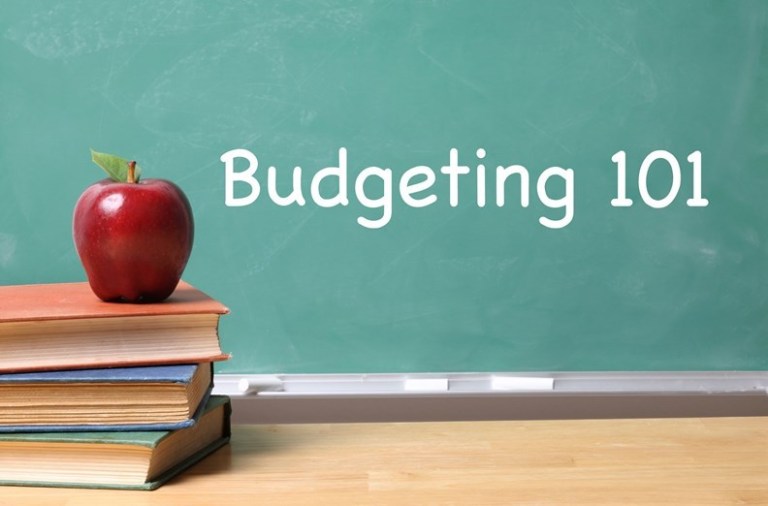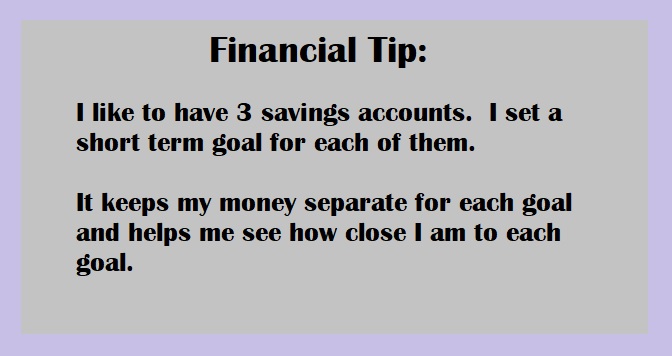
Imagine a world in which you are debt free. No more sleepless nights worrying about how you are going to pay off your credit cards, no more calls from collection agencies asking for payments. Although it may seem far off, this is not a fantasy, this can happen for you. You can pay off your debts and live a stress-free and debt-free life. It all begins with learning how to set up a budget that will help you meet your financial goals.
The Importance of Setting a Budget and Sticking To It
It doesn’t matter if you make $1,500 per month or $15,000, you still need to set an appropriate budget. If you do not, you will inevitably spend more than you make. This path only leads to stress and heartache. It all starts with having a good game plan at the beginning of each month. You need to know exactly what your income and expenses are and plan a budget accordingly.
If you are spending more than you are making each month there are only two options. You need to earn more money (easier said than done), or you can cut your spending down. Although we would all like to earn more money, the second approach is something everyone can immediately implement. Therefore, budgeting effectively is the approach we are going to focus on.
Monitor Your Spending
At Sunbeam Financial we suggest tracking all of your spending over the course of 10 days. You will quickly see the areas in which you seem to “throw money away”. Perhaps you wake up every morning and head to Starbucks for a $3.00 coffee before work. This money can easily be redirected toward a better area in your budget. You don’t have to skip your morning coffee each day, simply start making it at home or cut it down to twice per week. Knowing exactly where your money goes will make learning how to set up a budget a lot easier.
Cut Automatic Payments
Examine how often you go out to eat and what automatic services are coming out of your bank account each month. There are often times we have signed up for a monthly subscription that we no longer use. Amazon prime, Hulu, Netflix, Apple storage, gym memberships and other things can quickly add up and eat into your budget. Do a thorough examination of your automatic payments and see which ones you can cut out and redirect towards paying off your debts.
Avoid Emotional Buying
Buying on emotion is a quick way to break your budget. Take a look around your house and you will instantly see what I mean. Do you see some items that you purchased that you really never needed? I know I am personally guilty of this. When setting a budget to pay off our debts our aim is to only purchase things that are a true need. Emotional purchases may feel good in the moment but rarely do they add quality to your life. You more than likely will forget about them within a few days.
Start Investing Your Change
Most people feel they don’t have any extra money to invest, however, we know from experience this isn’t true. The easiest way to start saving is by doing it automatically. Acorns can help you with this process. Acorns is an application that will automatically round up your purchases to the nearest dollar and place the change into an investment account. Your money is invested into a portfolio based on your income and goals. That $3.30 you spend at Starbucks each day can actually help your retirement 🙂 The transaction will be rounded up to $4.00 and the 70 cents goes into your market fund. It is by far the easiest way to start investing in the market and saving for your future.

The Easiest Way To Set Up Automatic Investing
Start Earning Compound Interest
If you take the advice we suggested above my investing in Acorn, you will begin earning compound interest. Compounding interest on your investments really start to add up quickly. Don’t take it from us here are what a few of the smartest minds have said about compound interest…
– Albert Einstein –
“Compound Interest is the eighth wonder of the world. He who understands it, earns it, he who doesn’t…pays it”
– Warren Buffett –
“My wealth has come from a combination of living in America, some lucky genes, and compound interest”
Understanding the power of compounding interest will pay big rewards. Of course, the earlier you start saving the better but it is never to late to start. If you begin saving this way when you are young by the time you are ready to retire you will have built up a very solid nest egg that will be earning a huge amount of interest that you can live off of without even touching the principle. Learn all you can about compounding interest and start earning it right away.
How To Set Up A Budget: A Few Ways To Save and Live Below Your Means
We know budgeting can seem like a drag. It is much more fun to blow all your money on frivolous things. However, this will bring unneeded stress into your life. Learning how to set up a budget and cutting expenses is a much better option. Here are a few ways to make sure you are not living above your means. These are areas in which a lot of people can make changes.
Check out what you drive
What type of car do you have? Are you the type of person that buys a new car as soon as the old one is payed off? If so, instead of buying a new car dedicate at least half of that car payment to your investment account. You won’t even notice it because you were already spending that amount each month. Also, consider purchasing a used car instead of a new one next time. Most millionaires are not flamboyant and almost all of them drive used cars. Read the book “The Millionaire Next Door“. You will understand what I mean.
Of course, BMW’s and Mercedes are nice but they are expensive to buy parts for and repair. Toyota’s and Honda’s run forever and the parts are much less expensive. If you are really into cars and must have a certain brand this may not be an option for you. However, if you do choose the less expensive model your budget will thank you for it.
Vacations
Vacations are another area that most people can learn to save. By no means are we suggesting not to take vacations. We all need time away from work with family or friends. However, where and how long you choose to go on a vacation is key. Try to opt for all inclusive resorts. These resorts will have all of your meals, drinks and most activities paid for in advance. You will be able to budget perfectly for this type of vacation. Once you have paid for your main trip expenses there will be little to no extra expenses on the actual vacation.
If an all inclusive trip is not an option then set aside an exact amount you are willing to spend and do not deviate from that amount. All food, travel, and lodging must be included in the set budget. Planning ahead like this will keep you out of debt.
Insulate Your Home Properly
Making sure your home is properly insulated will result in you saving money. A lot of research has been conducted that says about 45% of all the energy you use at your home is going towards keeping it warm or cool. If you home is not properly insulated you could be spending as much as 50 percent more than you need to each month. Double pane and glazed windows help insulate your home and result in less energy consumption. These energy savings can be directed toward your investment account instead of the local electric company.
Planning and sticking to a monthly budget takes time and dedication. However, it will pay off in the long run when you prepare ahead and have a solid financial game plan.






